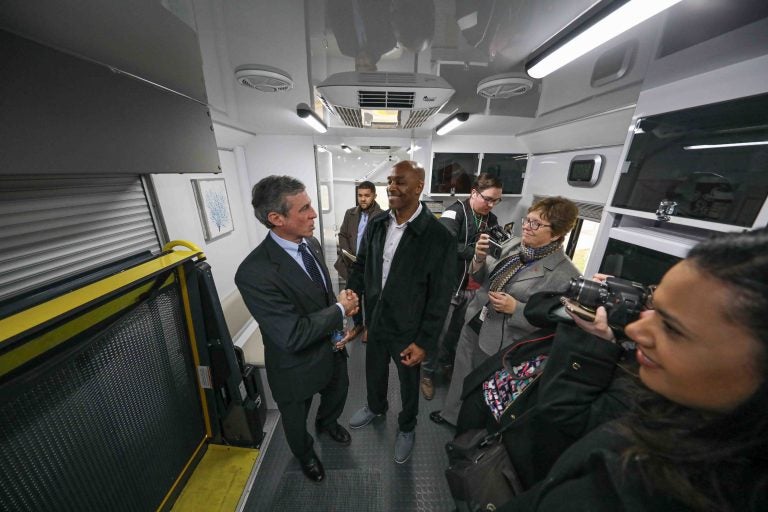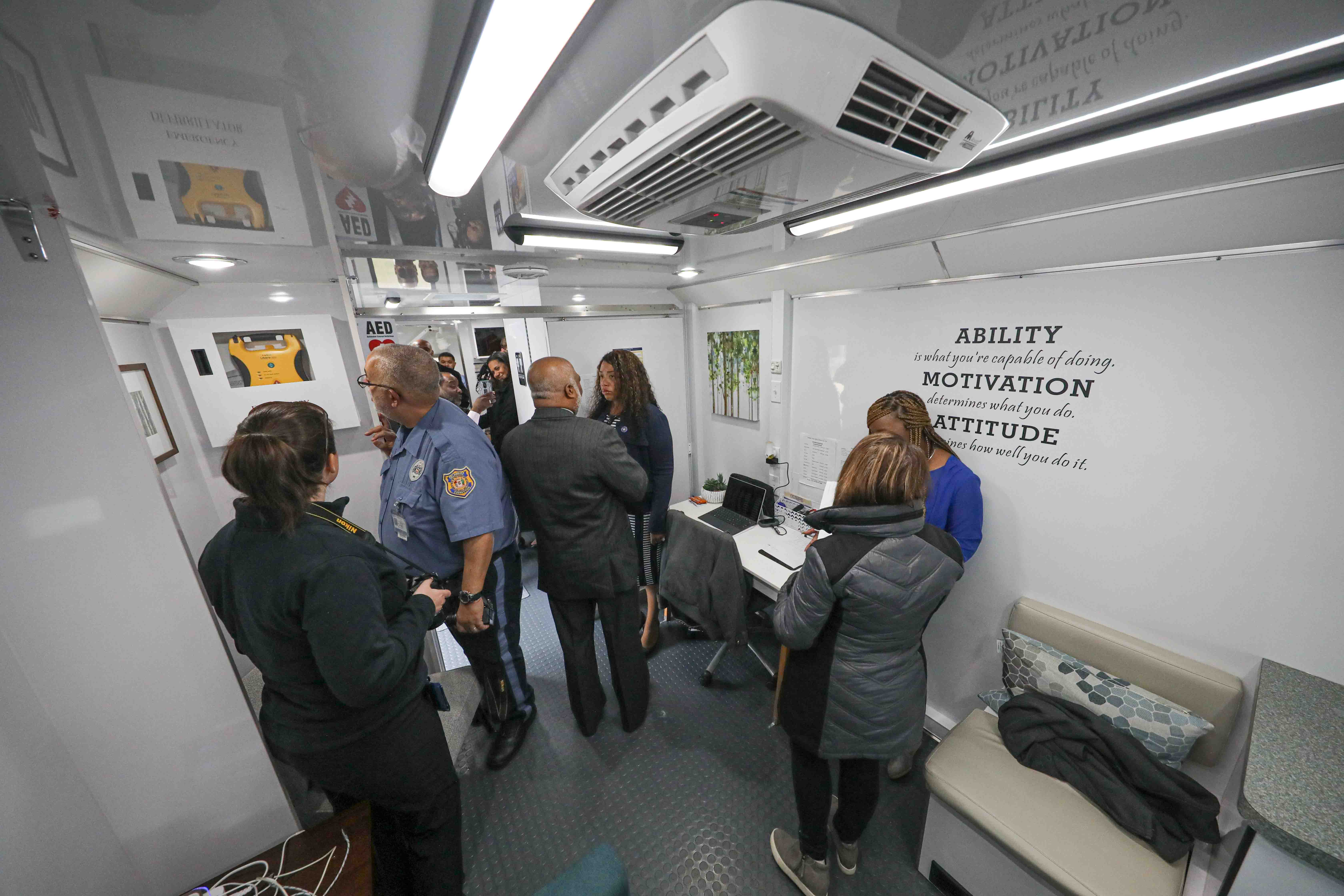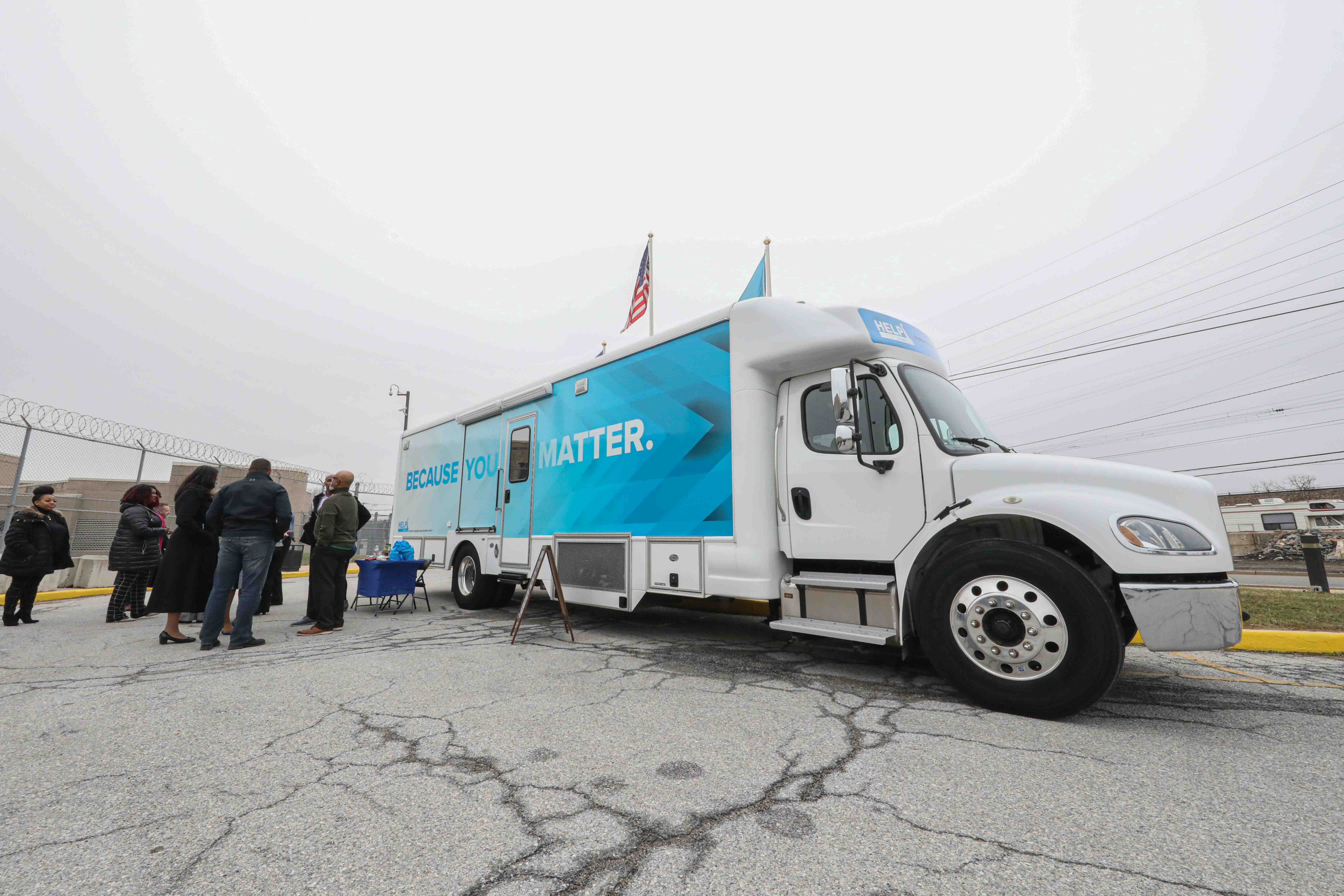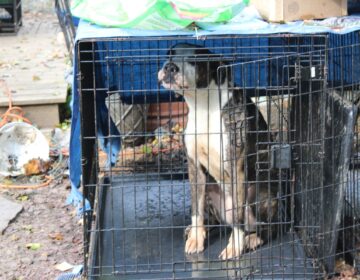Mobile van outside prison gate provides bridge to services for Delaware’s returning citizens
When men are released from prison in Wilmington, a mobile van will be waiting to get them the services they need, from an ID card to mental health treatment.

Tyrone Mathis (right) and Del. Gov. John Carney (left) shake hands after touring "The Bridge" van after a press conference on re-entry services at Howard R. Young Correctional Institution in Wilmington, Del. (Saquan Stimpson for WHYY)
Tyrone Mathis spent 14 years in a Delaware prison for robbery. He’s been out since April, and now he’s working at “The Bridge” to help other returning citizens reintegrate back into society.
The Bridge began in October at the Howard R. Young Correctional Institution in Wilmington. Run by the state Department of Health and Social Services, it’s a mobile van outside the facility’s gates where prisoners can get a bus pass and a bag of food.
“I basically focus on the guys that coming out of the [prison] gate. I try to do whatever I can for them,’’ Mathis said Monday as officials showcased the initiative.
The Bridge can also help former prisoners obtain an identification card, food stamps, Medicaid enrollment, mental health and substance use services, information about job openings and transportation to appointments.
“We try to let you know that, if you want to change your life, there’s someone out there that’s gonna walk you through steps to help you get yourself together,” Mathis said. “I think having someone waiting for you, that actually cares for you, is one of the most important things coming out of jail, because sometimes we don’t even have family members that believe in us.”

Gov. John Carney applauded Mathis while checking out the van.
“It’s awesome. Like he’s Exhibit A,” Carney said, adding that there are “hundreds and thousands’’ who need the aid Mathis is now providing.
Delaware prisoners’ high recidivism rates have been a long-standing problem. Nearly two-thirds of those released from prison end up back behind bars within three years.
Though that rate is slowly declining, the governor’s administration has refocused its efforts to ease the transition of formerly incarcerated people back home.
Prison officials are now assessing prisoners’ educational and vocational needs soon after they enter one of Delaware’s four prisons — not when their release is imminent. Corrections Commissioner Claire DeMatteis said that’s essential to prepare them for their release, whether it’s coming in a matter of months or years.

Carney said the government wants to help, but can only do so much to help ex-prisoners like Mathis.
“He’s got to make that choice,” Carney said. “He’s got to do the things that are necessary to do it. We can help, but fundamentally it’s his success.”
When asked else the state could do, Mathis said, “[They] need more of me out here.”
The governor agreed.
Right now the only mobile re-entry van is at the Young facility in Wilmington. But officials hope to secure more funding to expand the initiative statewide.
Dr. Kara Odom Walker, Delaware’s social services secretary, said the van provides an essential service to those who need it most.
“This is critically important. Making sure that we have the resources available when they most need it,’’ Odom Walker said. “This is a huge moment in time. If we can help people get connected to the right path forward, we have a much better chance of reintegrating those who are released from prison into our communities.”
“Being able to make sure we’re connecting people to job resources, mental health services and health resources at the moment of release is a big deal,” she added. “It’s a big game-changer.”
WHYY is your source for fact-based, in-depth journalism and information. As a nonprofit organization, we rely on financial support from readers like you. Please give today.





